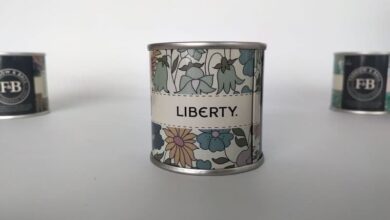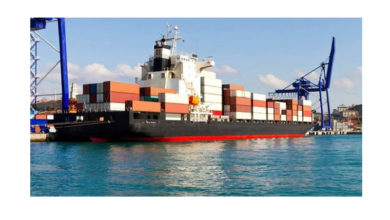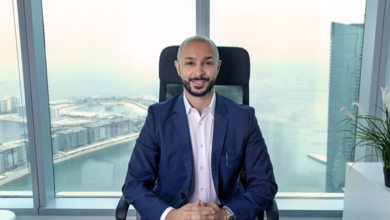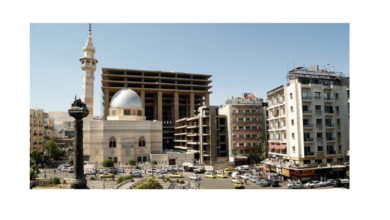Tasting Success in the Cigarette Packaging Industry

Sanctions and trade restrictions are not new to the people of Iran. With the new rounds of tough sanctions, trading and doing business in the country has become all the more difficult. Despite all these, a company is proving its mettle in the field of packaging and coated recycled carton board production. The company in focus is Mayr-Melnhof group, which started operation in Iran in the year 2009. A well known name in Europe’s folding carton industry, the group operates in two segments worldwide: MM – Karton and MM Packaging.
 Founded more than a century ago, the group employs about 8,800 employees from which 6,372 are working in its packaging division. The headquarters of the packaging division is based in Austria, and about 680,000 tons of carton board are converted every year at its 31 locations in Austria, Germany, France, UK, Spain, Poland, Romania, Russia, Ukraine, Tunisia, Turkey, Jordan, Iran, Chile and Malaysia. During 2011, the packaging division recorded a sale of about 1,124.9 million Euros.
Founded more than a century ago, the group employs about 8,800 employees from which 6,372 are working in its packaging division. The headquarters of the packaging division is based in Austria, and about 680,000 tons of carton board are converted every year at its 31 locations in Austria, Germany, France, UK, Spain, Poland, Romania, Russia, Ukraine, Tunisia, Turkey, Jordan, Iran, Chile and Malaysia. During 2011, the packaging division recorded a sale of about 1,124.9 million Euros.
In Iran, the company primarily concentrates on cigarette packaging. ME Printer Magazine met up with Mehdi Rahimi, managing director of MM Packaging in Tehran to know more about the company’s operations. Rahimi who has joined MM to establish the group’s branch in Iran explained the reasons behind MM’s investment in the Iranian market, “The MM group has been active in Europe for many years and based on their expansion plans they are now focusing more on the developing countries and especially the Middle East.” He added, “MM entered the packaging business in the year 1991, and after opening the facility in Iran they started new plants in Chile as well as Malaysia.”
Talking about the formation of the company, he said, “In 2008, MM representatives travelled to Tehran to learn about the possibilities of the market. MM group shares close ties with cigarette manufacturers such as the Japan Tobacco Incorporation (JT), who are very active in Iran. The Japanese company encouraged MM to open the packaging site in Iran. Meanwhile, based on the Iranian government’s initiative to promote local printing industry and limit the importation of printed material, MM’s investment seemed crucial for the flourishing JT’s activity in Iran.” Rahimi said that prior to the opening of the facility, cigarette packages were imported from Turkey and other parts of the world. He explained that this increased the price of the packages and the delivery time.
Detailing his relationship with the company, Rahimi said, “I met the CEO of MM during 2008, and in 2009 we registered the company. Since I was also looking forward to enter into cigarette packaging market our cooperation made lot of sense. In less than 12 months we purchased the land and built the factory. We started the printing operations from January 2011. Today, we offer products with the highest quality that are compliant with the strictest international standards. Not only international companies but local manufacturers such as the Iran Tobacco Company (ITC) trust us to produce packages for their cigarettes.”
A lucrative market
Based on the figures released by ITC, Iranians smoke more than 60 billion cigarettes each year, which is equivalent to smoking two cigarettes per person every day. Iran is a very huge and lucrative market for cigarette manufacturers, however producing cigarette packages is a very complex process and not everyone is up for the challenge. Rahimi explains, “Producing cigarette packages is a highly complex operation and it requires attention to details. Printing consistent colour after every run is a must and the delivery time is also very important. You have to be 100% committed to the delivery time and the deadlines. Package production is part of a bigger operation, which involves filling the packs and the distribution of cigarettes. Any delay in the printing and converting stages will disrupt the whole process and will cause huge losses to tobacco companies.”
The MM’s production facility in Tehran is practically a Heidelberg house. The equipment includes a 6 colour Speedmaster XL with coating unit, a complete Polar cutting line, two Dymatrix diecutters, a Suprasetter and a wide range of ancillary products as well as a modern lab for colour testing. Another 8 colour Speedmaster with double coating units has already been shipped to the company’s premises and will be up and running within few weeks.
The company is also planning to buy a diecutting machine from Heidelberg. Rahimi says that after carefully studying various proposals, MM decided to go ahead with Heidelberg. All the Heidelberg equipments were purchased directly from Germany. Iran Rotative, Heidelberg’s agent in Iran is in charge of the maintenance and after sale services. “At the beginning we had decided to buy KBA presses, but Heidelberg offered us a very good deal, which consisted of prepress, press and finishing equipment. We also have a 5 year maintenance and after sale service contract with Heidelberg. Based on this contract, they are providing us spare parts and maintenance services. However, the sanctions imposed on Iran and the difficulty in the banking transactions delays the part delivery. In emergency cases, we source the parts through the wide network of MM group,” commented Rahimi.
 Future investment
Future investment
Rahimi is optimistic about the future and is already thinking of expansion, which involves printing eye catching special effects using gravure presses. He says, “If the market demand in Iran shifts to more sophisticated packaging, we have the necessary infrastructure to install gravure presses as well.” Though there are national campaigns running to produce cigarettes locally, almost 40% of the cigarettes are still smuggled into Iran. Two third of the remaining 60% is produced by the National Tobacco company, which belongs to the government. The rest are produced by the private sector. At the moment, MM Tehran is producing packages for brands such as Winston, Magna, Monte Carlo and a range of other local and international manufacturers. More than 100 people are working in Tehran’s factory, which produces 150,000 printed sheets per day.
“Our emphasis is not only on quality but also in employing highly skilled people and elevating their skills through an on-going training in Iran and abroad. MM’s tailor made training program, which is called ‘Diamond’ is a highly effective program and helps our employees in understanding and embracing the quality,” concluded Rahimi.





